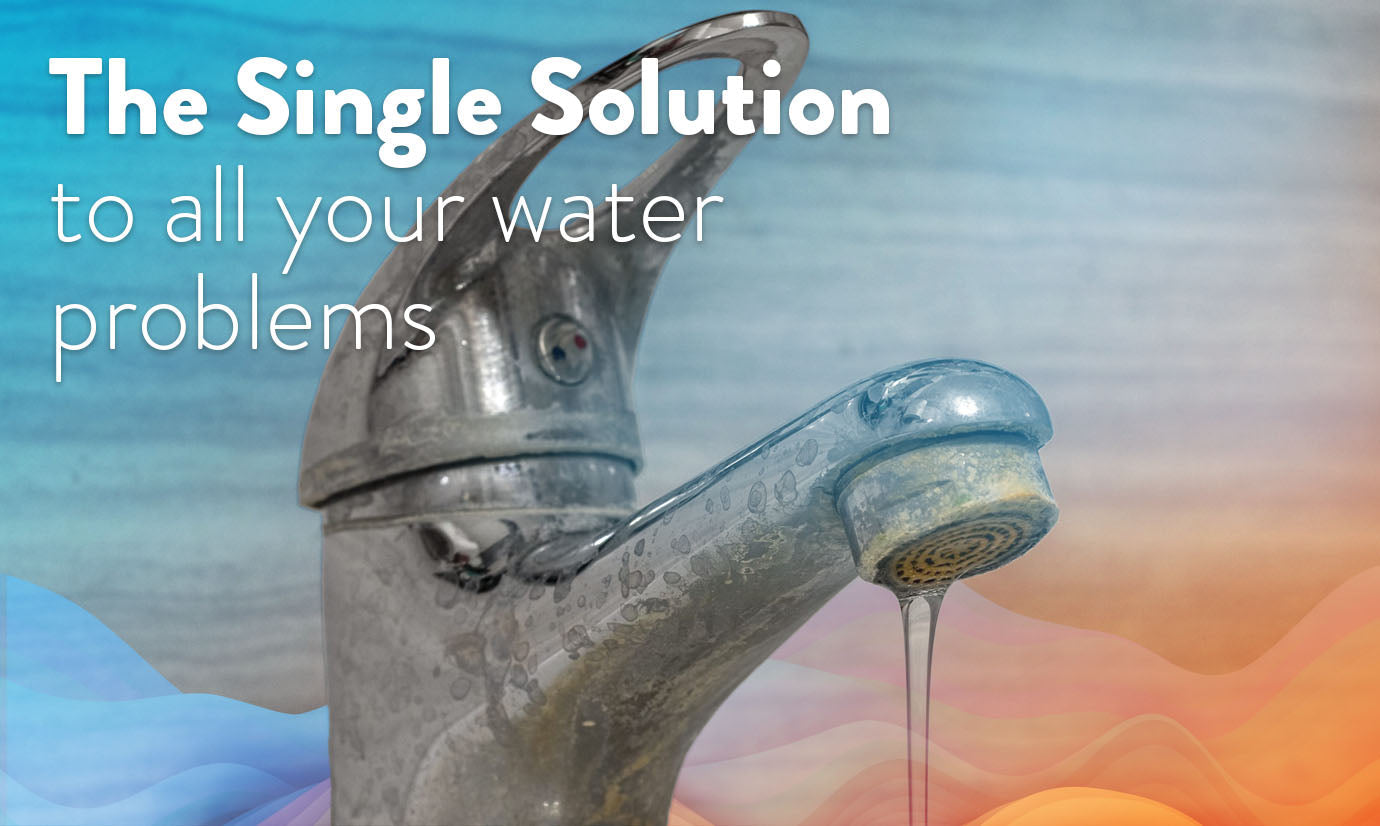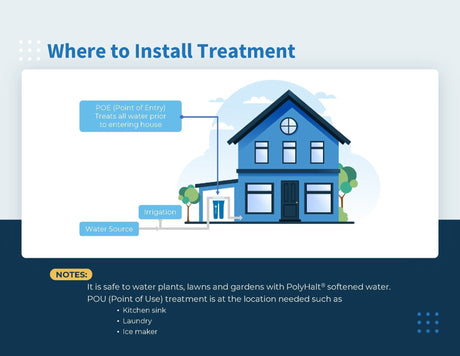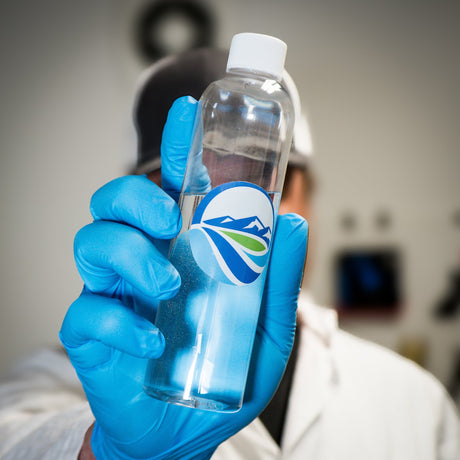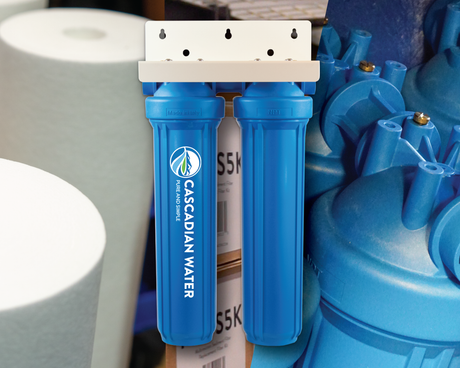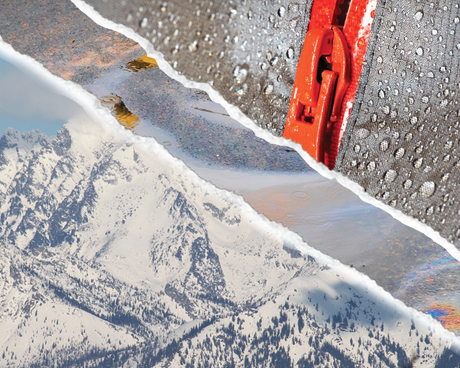Most of us are inclined to think that our home water is just water — until water quality issues hit. No matter what your water source, what comes out of your faucet is actually pretty complex, and can cause a variety of issues that range from mild inconveniences to plumbing-wrecking nightmares.
"Rotten Egg" Smells
Ever turned on the faucet and suddenly felt like you’re trapped in an elevator with a flatulent coworker? That "rotten egg" smell is not your imagination – it's hydrogen sulfide in your water, and it's a real stinker! Hydrogen sulfide, produced by sulfur-consuming bacteria that thrive in subterranean environments, occurs naturally in groundwater and is relatively harmless. However, we’d all rather avoid its overpowering odor and the mild skin, eye, and throat irritation it can cause.
High hydrogen sulfide levels in your tap water are easy to address once your exact water chemistry is known. However, this is the tricky part, since there are actually quite a few different variables,ranging from pH, iron and manganese levels, along with other factors, to consider when assessing how to properly treat H2S-rich water. Assessing proper hydrogen sulfide treatment strategies is best left to the experts, so if you just can’t stand the smell and want a solution now, feel free to hop on a call with Cascadian — we’ll get to the bottom of your hydrogen sulfide problem and match you with the right product from our trusted “ICS” (Integrated Cartridge Solutions) line, which offers protection against the corrosive and smelly effects of H2S that affect both your water quality and the longevity of your water softener.
Mineral Scale: Ghosts of Hard Waters Past
Hard water stains (also known as mineral scale or mineral stains) are trace minerals left behind once hard water dries. These unsightly marks on your fixtures and dishes can be a beast to clean, and also irritate sensitive skin. The heavy-duty cleaners used to attack tough scale buildup tend to be highly toxic, and are at best a temporary fix. This is another scenario where the right water softener can make a world of difference, since correctly treated minerals require way less elbow grease and less aggressive household products to clean up.
Slippery, Slimy, Soapy Water
Sometimes, salt-based (ion-exchange) water softeners do their jobs a little too well, leading to water that’s “wetter than wet” with a slippery, slimy, filmy feel to it. This is the result of water being so soft that it has difficulty scrubbing away soap residues, which tend to linger on skin and household surfaces. To address this, you could use less soap (far from ideal, in most cases), switch to a specialty soap (expensive, difficult to source, and in most cases loaded with questionable synthetic ingredients), or switch to an ion-bond based water filter like Cascadian, which leaves natural minerals intact in water, removing their “hard” properties without the over-softening side effects of traditional salt-based systems.
Bad Hair Days
You’ve probably had inexplicable “good hair days” while traveling. Although climate, diet, and stress levels can all account for changes in hair texture and thickness, water quality can sometimes be the underlying cause of that selfie-worthy ‘do. Bad water quality can also interact with your hair — and the products you use in it — in a way that’ll have you reaching for your favorite hat. Water that’s too hard can obviously wreak havoc on all hair types, but more surprising is the fact that water that’s too soft can lead to equally unappealing results when it comes to hair. This is because overly soft water, as you may recall from our discussion of the “wetter than wet” effect above, makes it very difficult to remove product from your hair, leading to buildup of product residues intended to be washed out.
Polyphosphates: What are these Mystery Chemicals and Are They Safe?
Polyphosphates might sound like something straight out of a science fiction movie, but they're a natural chemical that’s been used to treat hard water and prevent scale buildup for centuries. So, in general, the answer is yes: they’re very safe. However, not all polyphosphates are created equal. It’s important to use only those that are third-party certified to meet EPA guidelines for human and environmental safety, and designed to treat the specific water quality issues you’re experiencing.
Many Problems, One Solution
To put things in the simplest possible terms: you want water that’s not too hard, not too soft, and safe to drink and bathe in. Traditional salt-based water softeners take care of hard water, but do so at the expense of the environment and the consumer, and may even over-soften your water, leading to problems like slimy-feeling water, hair product retention, and slippery household surfaces. Concerns about chemicals in home water, such as polyphosphates (which are, fortunately, very safe when used correctly) are felt for good reason, especially as water purity issues in places like Flint, Michigan and Austin, Texas continue to make headlines.
If you’re ready to stop worrying about these issues, it’s time to give Cascadian a try. We’re experts in the water softening sector with over 30 years experience of handling the toughest hard water problems, and since 2012 have been innovative leaders in the ion-bond softener world, which, with years of testing and thousands of satisfied homeowners to back us up, we believe is the future of soft, safe, low-maintenance water: the next-best thing to a mountain spring cascading through your home.
Any questions? We’re here to help you.

